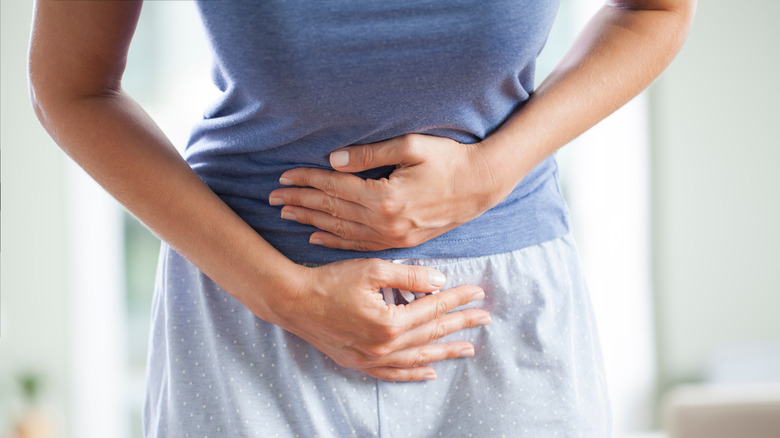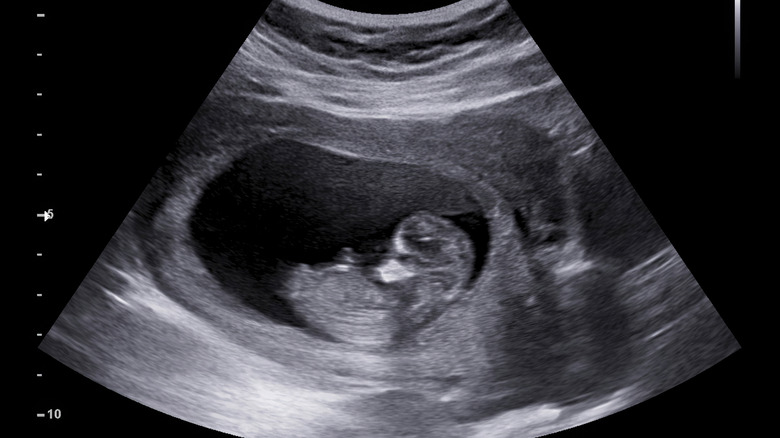Reasons Why You May Experience Uterus Pain In Early Pregnancy
If you've recently found out that you're pregnant, congratulations! You may also be discovering some of the early pregnancy symptoms that come along with this period of gestation.
Or perhaps you decided to take a test because you missed your period, which is one of the earliest clues that a pregnancy is on its way, as per the Mayo Clinic. Or, you realized that your breasts were sore to the touch and feeling heavier — another telltale sign.
Other common early signs include needing to urinate more often than normal, feeling tired, bloating, and light spotting, which often indicates that the fertilized egg has implanted in the uterine lining. Since some of these symptoms mimic pre-menstrual symptoms or an impending illness, it's important to confirm your pregnancy with your healthcare provider in order to be certain.
Pelvic pain is yet one more common symptom that many women experience as pregnancy takes hold in their bodies. MSD Manual states that this type of pain can present in different ways. You may feel sharp, shooting pains that remind you of menstrual cramps or a lighter achiness that isn't as intense but lasts for longer periods of time. When this pain is specifically located in the uterus, there are various explanations, most of which are fortunately not serious, according to Medical News Today.
What cause early uterine pain
Medical News Today states that one of the most common causes of uterus pain during early pregnancy is that the muscle itself is preparing and starting to grow to accommodate the growth of your baby. For a helpful visual, the Cleveland Clinic specifies that the uterus begins the pregnancy the size of a lemon and eventually stretches to the size of a watermelon by the time baby makes its entrance into the world. However, while the uterus is still fairly small in the beginning, it is targeted by hormones designed to support and sustain a pregnancy, such as progesterone, which can cause cramping.
If the pain you experience feels less like normal menstrual cramps and more like a sharp intense pain, it is likely due to the stretching of the round ligaments that support the uterus (per Medical News Today). Luckily this pain won't last very long, although it can be provoked when sneezing, coughing, or abruptly changing positions.
In most cases, uterus pain will come and go and not require medical treatment. However, Medanta outlines a more serious condition that leads to pain in the uterus and surrounding areas, known as an ectopic pregnancy. This is when the fertilized egg implants in an area other than the lining of the uterus, such as in the fallopian tubes. The American College of Obstetricians and Gynecologists adds that an ectopic pregnancy is not viable and requires immediate medical attention as it can be life-threatening.


